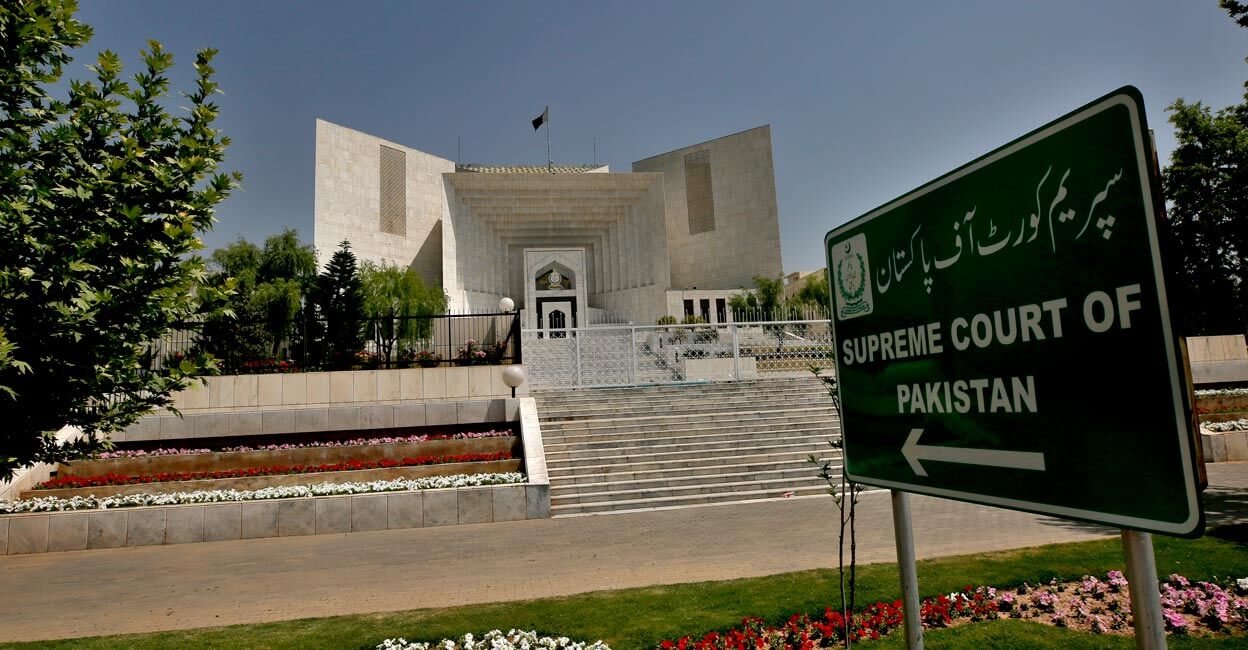Pakistan’s Supreme Court ruled that Prime Minister (PM) Imran Khan’s decision to dissolve the National Assembly (NA) and call for fresh elections was “unconstitutional.” Consequently, the Court directed that the Parliament must convene on Saturday to conduct the trust vote against Khan, once again opening the door for his ouster.
Last week, NA Deputy Speaker Qasim Suri dismissed the no-confidence motion against Khan, calling it a foreign conspiracy. Following this, President Arif Alvi dissolved the NA and declared Khan as the caretaker PM until new elections were held because the ruling coalition had lost the support of its allies and its majority in the Parliament.
However, the constitutionality of Alvi’s announcement was questioned by the opposition, who argued that according to Article 58 of the Constitution, the NA cannot be dissolved if there is a pending no-confidence motion against the PM. They then approached the Supreme Court to challenge the NA’s dissolution.
Pakistan Supreme Court order restoring assemblies and rejecting deputy speaker's dismissal of vote of no-confidence motion, part 1/n pic.twitter.com/BJX4cKC3Ma
— Asad Hashim (@AsadHashim) April 7, 2022
While giving the judgement on Thursday, all five judges on the Supreme Court bench voted to overturn Suri’s decision to dismiss the trust vote and Alvi’s subsequent dissolution of the NA. The apex court determined that the Deputy Speaker and the President’s decisions were “contrary to the Constitution and the law and of no legal effect.”
Though the judges ordered the NA to convene for the trust vote on Saturday, they clarified that Thursday’s order would not impact the functioning of Article 63A of the Constitution, which calls for the disqualification of party members who vote against the party leader on issues such as no-trust motions and money bills. Nevertheless, the Court held that if the trust vote passes, the NA must appoint a new PM.
Expectedly, the decision was welcomed by the opposition parties, who have been eager to cast their votes in the no-confidence motion, given that they have now secured a majority of votes. Opposition leader Shehbaz Sharif applauded the ruling, saying that the apex court had “definitely fulfilled the people’s expectations.” Along the same lines, Pakistan People’s Party (PPP) leader Bilawal Bhutto Zardari declared the ruling as a “victory for democracy and the Constitution” and expressed hope that the trust vote would pass so that the country could begin “electoral reforms.”
Democracy is the best revenge!
— BilawalBhuttoZardari (@BBhuttoZardari) April 7, 2022
Jiya Bhutto!
Jiya Awam!
Pakistan Zindabad.
Meanwhile, PM Khan said that he would convene the restored cabinet and meet with the Pakistan Tehreek-e-Insaaf’s (PTI) Parliamentary Committee on Friday and then address the nation later in the day.
I have called a cabinet mtg tomorrow as well as our parl party mtg; & tomorrow evening I will address the nation. My message to our nation is I have always & will continue to fight for Pak till the last ball.
— Imran Khan (@ImranKhanPTI) April 7, 2022
Minister of Information and Broadcasting Fawad Chaudhry said that Khan had also convened a party meeting on Thursday night to assess their options following the judgement. According to Geo TV, the leaders discussed a variety of options during the meeting, including “en masse resignations” from the NA, to “thwart the designs of the combined opposition.”
Following the Court’s judgement, Chaudhry remarked that the decision meant that the country would have to “struggle” for an “independent Pakistan” once again. He regretted that the ruling had “pushed the country towards further political turmoil,” adding, “The opposition is trying to push Pakistan towards slavery; we will not let them succeed.”
Pakistan Trust Vote Coverage:
- Pakistan Imran Khan Dissolves Parliament and Calls for Early Election
- Pakistan PM Imran Khan Loses Majority Just Days Before Trust Vote as MQM-P Severs Ties
- Pakistan PM Imran Khan Insists on Foreign Conspiracy With Alleged Threat Letter
- Pakistan PM Khan Succumbs to Pressure From Within Coalition, Ousts Punjab CM Buzdar
- Pakistan PM Imran Khan Claims “Foreign Money” Fuelling Opposition’s Goal of Toppling Gov’t
- Pakistan Interior Minister Warns PTI “Turncoats” of Early Elections Ahead of Trust Vote
- Pakistan Army Chief Bajwa Reportedly Asks PM Imran Khan to Resign After OIC Conference
- Embattled Pakistan PM Imran Khan Calls Army “Animals” for ‘Neutral’ Stance on Trust Vote
- Pakistan PM Imran Khan Scrambles For Support as Opposition Submits No-Confidence Motion
- Pakistani PM Imran Khan Warns Opposition of Consequences of Failed No-Trust Vote
Khan’s PTI party had 155 members in the 342-member NA. It had originally formed a majority government with four coalition partners—Muttahida Qaumi Movement (MQM), Pakistan Muslim League-Quaid (PML-Q), Balochistan Awami Party (BAP), and the Grand Democratic Alliance (GDA), which respectively had seven, five, five, and three seats. However, given that MQM and BAP left the ruling coalition and announced their decision to support the opposition in ousting the PM, Khan is virtually guaranteed to lose tomorrow’s trust vote, meaning that Pakistan will continue its tradition of a prime minister never having completed a full term.

